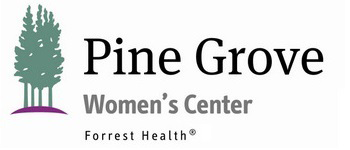The Link Between Exercise Addiction & Eating Disorders
Exercise addiction is seen in individuals with and without eating disorders, but it has for some time now been identified as a major contributor in eating disorders. Most commonly, exercise addiction is correlated with anorexia nervosa. Prior to a deeper dive on the relationship between exercise addiction and eating disorders, let’s briefly break each diagnosis down.
Eating Disorder Terms
Life-threatening eating disorders include anorexia nervosa, bulimia nervosa and binge eating. These illnesses are often associated with extraordinary pain, persistent ailments and death.
Anorexia nervosa is a condition wherein an individual doesn’t eat enough to support a typical body weight and encounters dread identified with putting on weight or getting fat.
Bulimia nervosa includes binging (eating a lot of food in a brief time frame) with endeavors to abstain from putting on weight by making oneself regurgitate, fasting or excessively working out.
Individuals with binge eating disorder (BED) voraciously consume food; however, they don’t regurgitate or utilize different techniques to forestall putting on weight after a binge.
Exercise Addiction Terms
Exercise addiction has long been assumed to be a major contributing factor in several eating disorders. This compulsion is paired most often with anorexia nervosa, but has also been acknowledged as contributing to other eating disorders as well. Here are a few terms to describe exercise addiction as pertaining to eating disorders.
Excessive exercise is working out more frequently or much longer than what is recommended by health professionals.
Compensatory exercise is working out to make up for the quantity of calories eaten during a binge.
Compulsive exercise is feeling you need to exercise and feeling troubled in the event that you can’t, keeping an inflexible activity schedule and working out solely to control your weight or shape.
Correlation Between Exercise Addiction & Eating Disorders
As mentioned above, exercise addiction is a major way that individuals with eating disorders may attempt to counterbalance eating. Exercise addiction may put a person in danger of lessening their daily caloric intake. Organic elements related with dietary issues (strict diet and serotonin imbalance), psychological factors (anxiety, rigidity and obsessive-compulsive symptoms) and other personality traits (perfectionisism, an unbending nature and impulsive manifestations) assume a part in the connection between exercise addiction and eating disorders.
In treating individuals with eating disorders, exercise addiction is regularly utilized as an approach to deal with their own state of mind. Excessive exercising can be used as a means to avoid any negative feelings one is having. This type of exercise is becoming perhaps the most consistent symptom of eating disorders in today’s world. With this being the case, exercise addiction is likely to alter the course of one’s recovery from their eating disorder. Excessive exercise also puts an individual in a direct path that’s headed towards relapse and potential rehospitalization.
If your loved one has begun to work out excessively, abandon other interests to exercise or discuss their caloric intake in a troubling way, please reach out to Pine Grove.
Find Recovery at Pine Grove
Compulsive exercise may contribute to more and more health problems, such as severe dehydration and muscle, joint and bone injuries. It is essential that individuals addicted to exercise on top of a serious eating disorder seek help.
For more information about age-appropriate care, please contact Pine Grove today. Our compassionate admissions staff will create a treatment plan that is fully customized for the needs of yourself or your loved one.
Find out more about eating disorders and the National Eating Disorders Awareness Week here.







